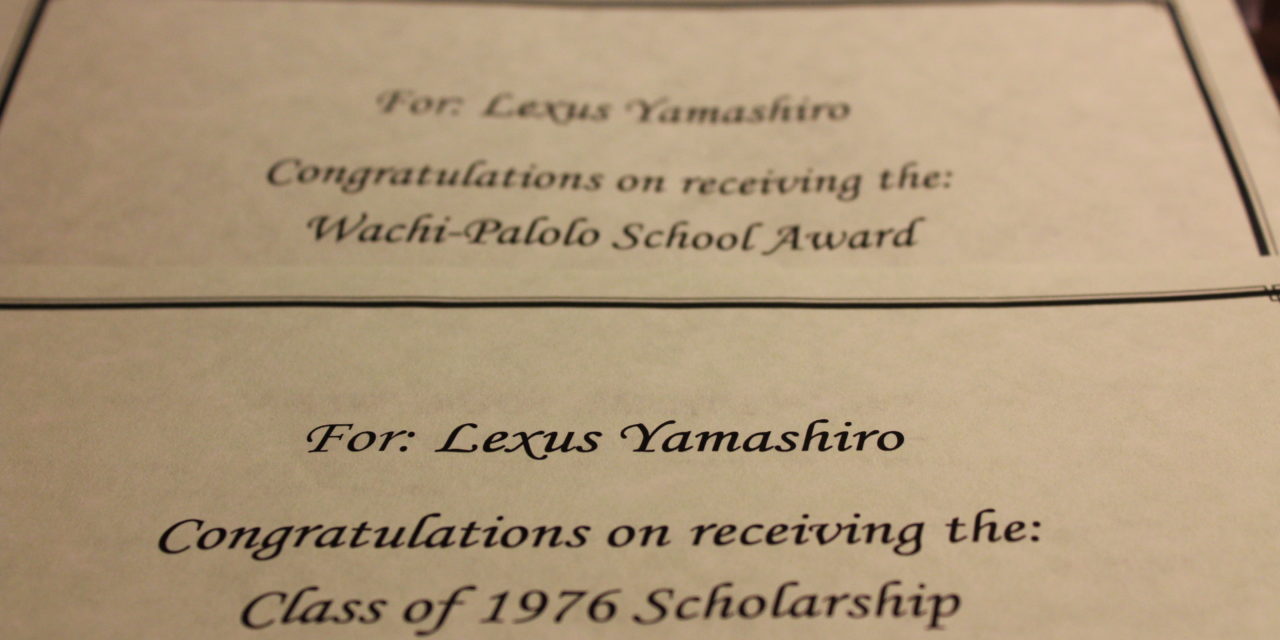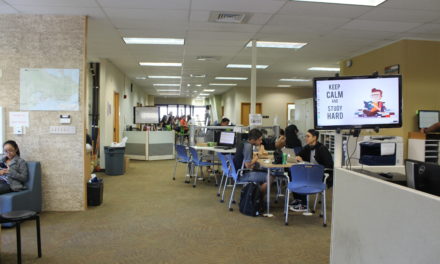By Lexus Yamashiro | Staff Writer
When it comes to paying for college tuition and other school related costs, it can take a toll on students. The cost of tuition is said to be rising every year, and financial aid and paychecks from work can’t cover it all. As a first-year student, I realize the struggle of having to pay for these expenses.
This is when scholarships come in handy, providing that time and effort is put into applying for them. Applying for scholarships is something that I wish I could’ve done more during my senior year of high school, considering that I received the King William Charles Lunalilo Scholarship, which covers my first year of school, including books and bus passes.
Scholarships have many advantages, one of them being that as a student you receive free money that doesn’t need to be paid back to the donor. Compared to financial aid and loans, money needs to be paid back to the government within a specified grace period. For some who aren’t able to work while attending school, this can be a conflict if there is no other source of income.
After applying for a handful of scholarships, here are some of the basics that I have come to understand and improve in while applying for them:
Personal Statement/Essay:
This is the one section of a scholarship that everyone seems to despise completing, regardless if they are an active writer or not. I have to admit that I also don’t enjoy working on this section, mainly because I know that when I reach the end I’ll be over the word limit. However, doing this essay allows students to express themselves in a way that makes them stand out above everyone else.
Teachers who discuss this in class normally ask “What makes you stand out the most compared to everyone else?” Some respond with several hours of community service, others may say that they are the first in their family to attend college to earn a bachelor’s degree. As amazing as some of these outstanding characteristics of a student sound, truthfully, the people who read these essays will probably pass over them because they sound too cliché.
According to a few of my professors, what donors look for in students is an individual who can make a difference in the community, someone who can later give back what he/she has learned after earning a degree. However, before leading up to this, these are just some common areas that scholarship applications will ask about:
- Education goals
- Career goals
- Current employment
- Accomplishments
- Personal background
- Challenges that are being faced as a result of current financial circumstances
- Barriers to obtaining educational goals and how you will overcome them
Creatively integrating each section to make it lead up to the final reason as to why you are a possible candidate for the scholarship is what will make you stand out the most amongst many others that are competing for the same financial benefit.
Letter of Recommendation (LOR)/References:
Typically, scholarship applications require that the student ask two recommenders (preferably a teacher, counselor, employer, etc.) to submit a letter of recommendation for the scholarship application. The best way to get excellent LORs is by getting to know your potential recommenders. Building a genuine relationship from the start is what helps them to recognize the strengths and knowledge that you possess as a student.
Once you feel that you’ve established a common ground, this is when you ask. These are some of the common steps that students should follow:
- Approach your recommender at least two weeks before the application deadline: Whether it’s through a face-to-face conversation or by email, it is a must that the recommender be given a two-week grace period before the scholarship application comes to an end. The recommenders that students tend to ask such as professors and employers are busy people, which is all the more reason why they need time to write out a thorough LOR.
- Provide a copy of your personal statement: Forwarding your personal statement to your recommender helps them to get a better idea as to what they can write for you. This is more for in the case that the student is still trying to build that relationship with their recommender. However, if that relationship is already strong, it doesn’t hurt to share it anyways.
- Write a thank you letter: Whether you receive the scholarship or not, it is common courtesy to thank your recommender for taking the time to write a LOR. It is best to do this immediately once you find out that he/she sent it in; stalling will only make your appreciation towards your recommender less genuine.
Student Aid Report (SAR) and Transcripts:
Before any student can receive his/her SAR, the student must complete the FAFSA application online, which typically becomes accessible within two weeks of applying. It is not required that students use FAFSA to take out student loans, but in order to receive and send a SAR, all students who want to apply for a scholarship application that require this will need to have one filled out. The best time to apply for FAFSA is when notifications go out that a new application has opened; the longer students wait to apply, the longer the process will take.
Transcripts are another important document that scholarship applications often require, and there are two different ones that students need to be aware of:
- Unofficial transcript: These transcripts are the documents that students can upload for online scholarship applications that do not require a signature, seal, or date.
- Official transcript: This transcript requires the school registrar’s signature, college seal, and date for when it was issued. These transcripts cannot be uploaded for online scholarship applications; it will be sent to the application office via mail, which cannot be opened by anyone other than the addressee.
When it is time to ask for a transcript, it is best to keep cash on hand regardless if it is an official or unofficial transcript.
As a student who comes from a single-income family and who only got her first job during the first semester of school, I encourage everyone to apply for scholarships. It is impossible to get through school by yourself without some other source of income. As tedious as it may seem and become after a while, applying for scholarships can tremendously benefit students who have financial needs.
Correction: In an earlier version of this article, it was stated that recommenders be given no more than a two weeks notice to write an LOR. Recommenders should be given at least two weeks before the scholarship application deadline to write an LOR. We apologize for the error.







Good tips. I’ll be bookmarking this for my child to read someday.
Thank you for reading!